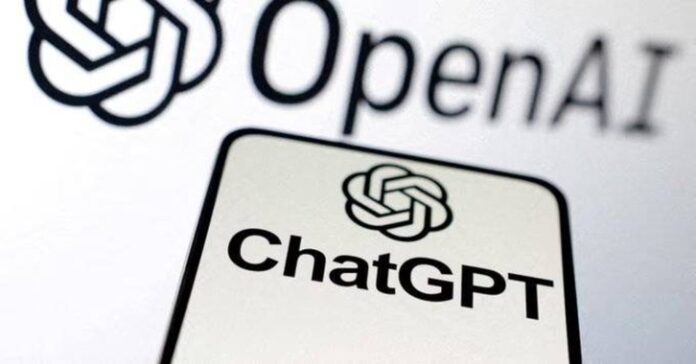The OpenAI mental health assessment has ignited intense public debate after the company shared new details about how it evaluates users’ emotional well-being when using ChatGPT. The AI giant revealed it has developed specialized taxonomies—detailed guides designed to detect and respond to sensitive conversations related to mental health, suicidal thoughts, or emotional dependence on AI.
While OpenAI says these safety systems were built in collaboration with hundreds of clinicians and psychologists worldwide, critics argue the approach crosses ethical boundaries and amounts to digital “moral policing.”

OpenAI Mental Health Assessment: A Step Toward Safer AI or Overreach?
OpenAI announced that its mental health assessment framework enables ChatGPT to better identify distress, de-escalate sensitive conversations, and direct users to professional mental health support. This includes providing access to local crisis hotlines and redirecting users from potentially risky AI interactions to safer model versions.
According to OpenAI, this initiative stems from growing concern over users forming emotional dependencies on AI chatbots. The new taxonomies aim to prevent harm by defining when and how the model should intervene.
However, many critics believe this is a slippery slope, suggesting the company is monitoring and judging the “emotional quality” of user interactions, which some see as invasive.
How OpenAI Designed Its Mental Health Detection Framework
In its report, OpenAI explained that the mental health assessment system was built with input from over 300 clinicians and psychologists across 60 countries. Of these, around 170 experts endorsed the final model guidelines.
The company stated that the AI was “taught” to recognize signs of emotional distress, psychosis, mania, depression, and suicidal ideation. It runs structured tests alongside real-world conversations to fine-tune detection accuracy.
Interestingly, OpenAI’s data suggests that:
- 0.07% of weekly active users show possible signs of psychosis or mania.
- 0.15% exhibit potential suicidal intent or emotional reliance on ChatGPT.
While those numbers seem small, given ChatGPT’s global user base, they translate to tens of thousands of individuals potentially flagged for mental health risks every week.
OpenAI’s Collaboration with Mental Health Experts
OpenAI emphasized that the mental health evaluation system was developed with strong medical backing. The company said it worked with licensed psychiatrists, psychologists, and behavioral scientists to validate its taxonomies and ensure that safety measures meet clinical standards.
These taxonomies, according to OpenAI, act as rulebooks for identifying sensitive conversations. They help ChatGPT understand tone, emotional cues, and conversation context, enabling it to respond more appropriately to signs of distress.
Yet, some experts remain skeptical about how these assessments can be accurate without deeper human understanding or consent.
Why the OpenAI Mental Health Assessment Sparked Backlash
Despite OpenAI’s intention to improve user safety, its mental health assessment practices have drawn widespread criticism online. Users and experts have voiced concerns that the system may misinterpret human emotions, overreach into private conversations, or even stigmatize mental health struggles.
Several users on X (formerly Twitter) voiced their concerns:
- User @masenmakes criticized the process, saying, “AI-driven ‘psychosis’ and AI reliance are emotionally charged and politicized topics that deserve public scrutiny, not secret corporate testing.”
- Another user, @voidfreud, pointed out inconsistencies in the expert review, saying, “Experts disagreed up to 29% of the time on what was harmful or not. So who really decides? The legal team?”
- Meanwhile, @justforglimpse accused OpenAI of “moral policing,” claiming that it created “an invisible moral court deciding what’s healthy or too risky.”
The common thread among critics? Many fear that this type of emotional surveillance could blur the line between ethical AI safety and corporate control over human expression.
OpenAI’s Response to the Criticism
In response to backlash, OpenAI reaffirmed its commitment to ethical AI development and transparency. The company emphasized that its systems are not designed to diagnose mental health conditions or replace therapy, but rather to identify high-risk situations and provide timely resources.
OpenAI maintains that data privacy remains central to all safety measures. It also clarified that no personal mental health data is stored or used to profile users. Instead, the AI operates in real-time, applying the taxonomies to ensure safe engagement without long-term tracking.
However, the lack of open-source access to these guidelines and limited peer-reviewed validation has led many to question the true transparency of the system.

Ethical and Privacy Concerns Raised
The controversy around the OpenAI mental health assessment has reignited larger discussions about digital ethics and emotional AI. Experts warn that even well-intentioned systems can lead to algorithmic bias, where false positives could label innocent users as “at risk.”
Others argue that regulating how users emotionally interact with AI could suppress genuine expression, especially for people who turn to ChatGPT as a safe space to talk.
These ethical debates highlight a key question: Can an AI truly understand human emotion without misjudging it?
What This Means for the Future of AI and Mental Health
As AI becomes more integrated into everyday life, the OpenAI mental health assessment sets a precedent for how technology companies address user well-being. It could lead to industry-wide frameworks for AI emotional safety, potentially adopted by competitors like Google and Anthropic.
But as the backlash shows, balance is essential. Safeguarding users must not come at the cost of autonomy or emotional freedom. OpenAI’s challenge now is to prove that it can protect without policing.

